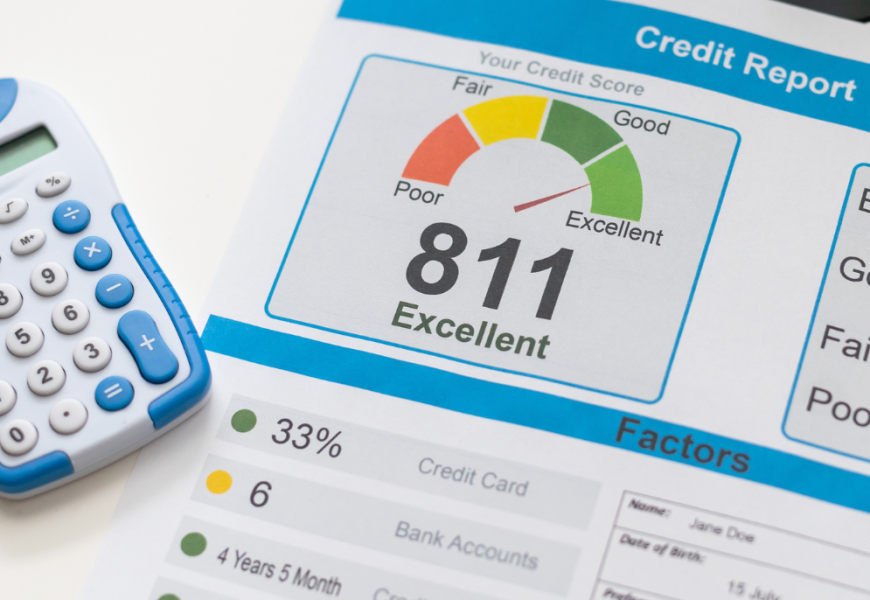Rent is one of the biggest monthly expenses for many people, so reporting on-time rent payments could be a strategic move to improve your credit score and build a credit history.
Millions of individuals struggle to access credit cards, auto loans, mortgages and rental homes due to a lack of credit history. A strong credit history not only opens the door to financial products but also expands rental options and lowers interest rates on loans, including mortgages if homeownership is your goal.
If you consistently pay your rent on time, having this payment history reported to credit agencies can be beneficial.
Keep reading to learn more about credit scores, how online rent payments can impact your credit history and how to leverage them to improve your financial outlook.
What is a Credit Score?
A credit score predicts how likely you are to make timely payments. It’s not a perfect science and doesn’t reflect your worth as a person or your financial responsibility. This score is derived from financial data collected by three main credit reporting agencies: Experian, TransUnion and Equifax.
Banks, mortgage providers, insurers and utilities use credit scores to determine whether to lend you money or provide services. Scores can affect the interest rates on loans and the amount you can borrow.
Landlords often use credit scores to evaluate potential tenants. Some set a minimum credit score requirement before considering an application.
How Are Credit Scores Determined?
Credit scores are calculated using financial information from your credit reports through mathematical models. These models consider four main factors:
– Payment history
– Amount of debt
– Length of credit history
– Types of credit (e.g., student loans, credit cards)
The most common scores are generated by the Fair Isaac Corporation (FICO) and VantageScore. Here’s a breakdown of FICO’s scoring model:
– Poor: less than 580
– Fair: 580-669
– Good: 670-739
– Very Good: 740-799
– Exceptional: 800+
Scores can fluctuate as new information is added to your credit reports.
What Credit Score Do I Need to Rent a Home?
Credit score requirements vary by landlord. Some landlords don’t require a specific score, while others may set a minimum.
How Do I Get a Good Credit Score?
To build and maintain a good credit score, pay your bills and loans on time, use less than 30% of your available credit, and ensure your credit reports are accurate. Negative marks like evictions, bankruptcies, foreclosures, delinquent loans or credit card balances can harm your credit score for years.
Landlords often run credit checks on potential tenants. These can be “soft” inquiries that don’t impact your score or “hard” inquiries that might. Multiple rental inquiries within a short period are usually treated as one soft check.
How Can Paying Rent Help or Hurt My Credit Score?
Simply paying rent doesn’t affect your credit score unless those payments are reported to credit agencies. A TransUnion survey from February 2022 found that only 15% of renters have their payments reported.
If reported, on-time payments can boost your score. However, late payments, if reported, can harm your credit score and make it harder to find a rental or buy a home.
Pros of Rent Reporting
– Builds Credit History: On-time rent payments on your credit report show financial responsibility, crucial for those without established credit histories.
– Boosts Credit Score: The impact varies, but those with little or no credit history may see a significant boost.
– Establishes Good Landlord Relations: Good tenants are valued by landlords, and rent reporting can build trust.
– Encourages Good Financial Habits: Knowing rent payments are reported can incentivize timely payments.
Cons of Rent Reporting
– Late Payments Lower Score: If late payments are reported, your score will drop, particularly if the reporting service includes late payments.
– Complicated in Roommate Situations: Coordination among roommates is necessary, as late payments can negatively affect your credit.
– Limited Impact on Credit Approval: The benefit depends on which credit agencies receive the reports and how businesses use the data. Not all scoring models consider rent payments.
How to Include Rent Payments on Your Credit Report
Discuss rent reporting options with your landlord. Some services require landlord participation, while others allow renters to use them directly. Costs can vary, with some services being free and others requiring payment from either the landlord or the tenant.
Your landlord might already use a rent reporting service, so inquire whether participation is optional or mandatory.










